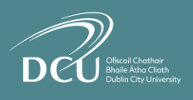About Electronic And Computer Engineering in Dublin City University
Why do this course?
This single programme, with four major options in Year Four, replaces and combines the best of DCU’s previous offerings in Electronic Engineering, Digital Media Engineering and Information and Communications Engineering.
You’ll be taught through conventional lectures, extensive tutorials (particularly in Year One), laboratory exercises and projects. Through these you’ll develop the ability to model and analyse the dynamics of a wide range of technological systems, as well as learn a creative and innovative approach to problem solving. The curriculum of the first three years and the 22.5 credits of core modules in Year Four are common to all ECE students.
In addition to the traditional engineering focus on mathematics and design, there is a strong software and programming theme running through our ECE programme. You’ll learn about C, C++, Java, Embedded Systems, Linux and Windows Operating Systems, Data Structures and Algorithms, Hardware Description Language, Object-oriented Programming, and in two of the Year Four majors, Web Application Development.
What opportunities might it lead to?
Electronic and computer engineers are sought by Irish and international organisations in the following areas and beyond:
- Design Engineer
- Management Engineer
- Production Engineer
- Research and Development Engineer
- Sales Engineer
- Software Engineer
Academic qualification equivalents
- Standard 12 through a recognised awarding body with average grades of 80% or above. Please note an average of all subjects studied will be taken. Mathematics and English must be included.
English language requirements (one of the below):
- IELTS for Undergraduate Programmes: Overall score of 6.5 or above, with no less than 6.0 in any one skill.
- TOEFL: Total Score of 92. DCU Business School additionally requires all section scores 21 or above.
- PTE Academic: Minimum score of 63, with no section score below 59
Dublin City University Highlights
| University Type |
Public University |
| Campus Setting |
Urban |
| Establishment Year |
1975 |
| No. of Campuses |
3 |
| No. of Residence Halls |
3 |
| International students |
2,337
71% in UG, 29% in PG courses |
| Research Funding |
~35 million EUR |
| Cost of Attendance |
~22,500 EUR |
| Applications Accepted |
Online/Offline |
| Work-Study |
Available |
| Intake Type |
Semester wise |
| Mode of Program |
Full time and online |
Dublin City University Average Tution fees And Other Expenses
Foreign students who wish to enrol at Dublin City University must be aware of the associated costs in order to budget appropriately and apply for scholarships when needed. The tuition costs for well-known programmes and other expenses related to studying in Ireland are covered below.
Tuition Fee for Dublin City University
Here are the details of the UG and PG fees for international students planning to study at any of the following faculties.
| Programs |
UG (EUR) |
PG (EUR) |
| Engineering |
15,000 |
17,000 |
| Business |
14,000 |
16,000-19,000 |
| Humanities |
15,000 |
15,000 |
| Science |
15,000 |
15,000 |
| Education |
12,600 |
13,700 |
Dublin City University Cost of Living
The cost of living here includes monthly expenses an international student would require to study at Dublin City University:
| Expense |
Monthly Cost (EUR) |
| Rent (On-campus) |
692-1216 |
| Rent (Off-campus) |
850-1300 |
| Food |
250 |
| Travel |
132 |
| Books and Materials |
75 |
| Medical |
45 |
| Miscellaneous |
178 |
| Total |
Approximately 2,222 |
